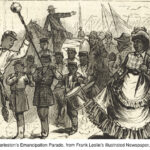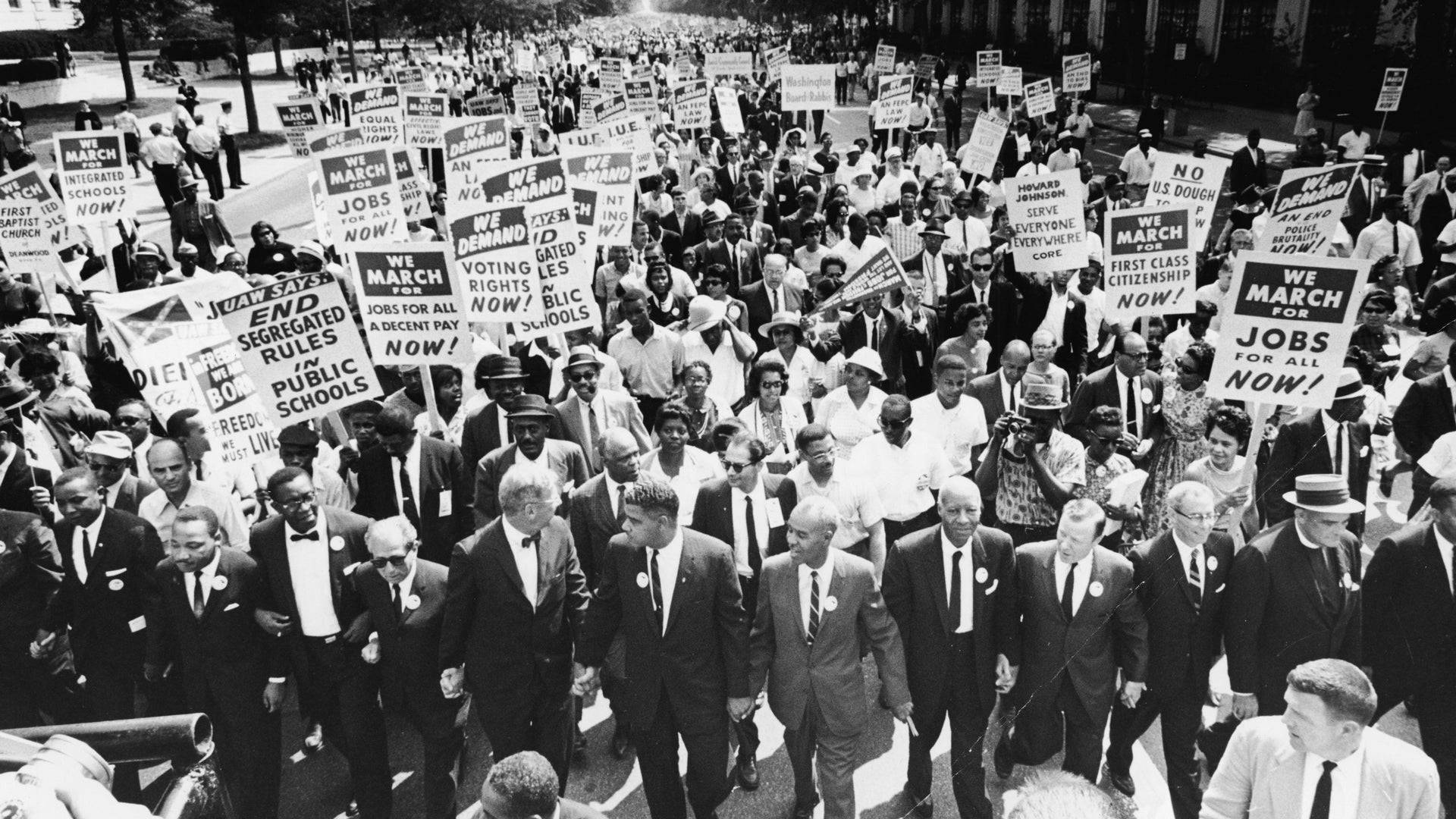
Juneteenth: Emancipation and Celebration of Freedom
August 24, 2023
The Life and Legacy of Jessica Barker
October 3, 2023The Civil Rights Movement: A Defining Struggle for Black Americans in Bronzeville Chicago
Introduction
The Civil Rights Movement was a period of intense social and political upheaval in the United States that aimed to end the legal and social discrimination against African Americans. The movement began in the early 1950s and gained momentum throughout the 1960s, culminating in the passage of landmark civil rights legislation, such as the Civil Rights Act of 1964 and the Voting Rights Act of 1965.
The Civil Rights Movement was a defining struggle for Black Americans in Bronzeville Chicago, a historically Black neighborhood that played a vital role in the movement. Bronzeville was home to many prominent civil rights leaders and organizations, and it was the site of numerous key events and protests.
Origins and Historical Context
The roots of the Civil Rights Movement can be traced back to the abolition of slavery in 1865. While the Thirteenth Amendment to the Constitution outlawed slavery, Black Americans continued to face discrimination and segregation in the years that followed.
In the late 19th century, southern states began enacting Jim Crow laws, which institutionalized racial segregation in all aspects of public life. Jim Crow laws were enforced through a combination of legal and extralegal means, including violence and intimidation.
The Jim Crow laws had a devastating impact on Black Americans in Bronzeville Chicago. They denied Black access to quality education, jobs, housing, and healthcare. They also created a climate of fear and oppression.
Despite the challenges they faced, Black Americans in Bronzeville Chicago refused to give up. They organized and fought for their rights, and they helped to spark the Civil Rights Movement.
Key Events and Turning Points
Bronzeville Chicago was the site of numerous key events and protests during the Civil Rights Movement. In 1951, the NAACP held its national convention in Bronzeville, where it adopted a new strategy of nonviolent direct action.
In 1963, Bronzeville residents participated in the March on Washington for Jobs and Freedom, where Dr. Martin Luther King, Jr. delivered his iconic “I Have a Dream” speech.
In 1966, Bronzeville residents staged the Open Housing Movement, which called for an end to racial discrimination in housing. The movement led to the passage of the Fair Housing Act of 1968.
Prominent Chicago Leaders and Their Contributions
Bronzeville Chicago was home to many prominent civil rights leaders, including:
- Dr. Martin Luther King, Jr.: Dr. King was a Baptist minister and activist who became the most visible spokesperson and leader in the civil rights movement from 1955 until his assassination in 1968.
- Malcolm X: Malcolm X was a Muslim minister and human rights activist who was a vocal advocate for Black nationalism and Black power.
- Fred Hampton: Fred Hampton was chairman of the Chicago chapter of the Black Panther Party. He was assassinated in 1969 by the Chicago Police Department.
- Dorothy Johnson Vaughan: Dorothy Johnson Vaughan was a mathematician and aerospace engineer who worked at NASA. She was one of the first Black women to be promoted to a supervisory position at the agency.
- Ida B. Wells: Ida B. Wells was an investigative journalist, editor, and anti-lynching crusader. She was a founding member of the NAACP and the National Association of Colored Women’s Clubs.
These are just a few of the many prominent civil rights leaders who made significant contributions to the movement in Bronzeville Chicago.
Legacy and Ongoing Struggle of African Americans in Bronzeville Chicago
The Civil Rights Movement had a profound impact on the lives of Black Americans in Bronzeville Chicago. It led to the passage of landmark civil rights legislation that outlawed discrimination and segregation.
However, the Civil Rights Movement did not end racism in America. Black Americans in Bronzeville Chicago continue to face challenges in many areas, including education, employment, housing, and healthcare.
Despite the challenges they face, Black Americans in Bronzeville Chicago have made significant progress since the Civil Rights Movement. The neighborhood is home to a thriving Black middle class, and it is home to many successful Black-owned businesses.
Bronzeville Chicago continues to be a center of Black culture and activism. The neighborhood is home to several important cultural institutions, such as the DuSable Museum of African American History and the Bronzeville Black Arts District.
Conclusion
The Civil Rights Movement was a defining struggle for Black Americans in Bronzeville Chicago. It was a time of great hope and progress, but it was also a time of great sacrifice.

